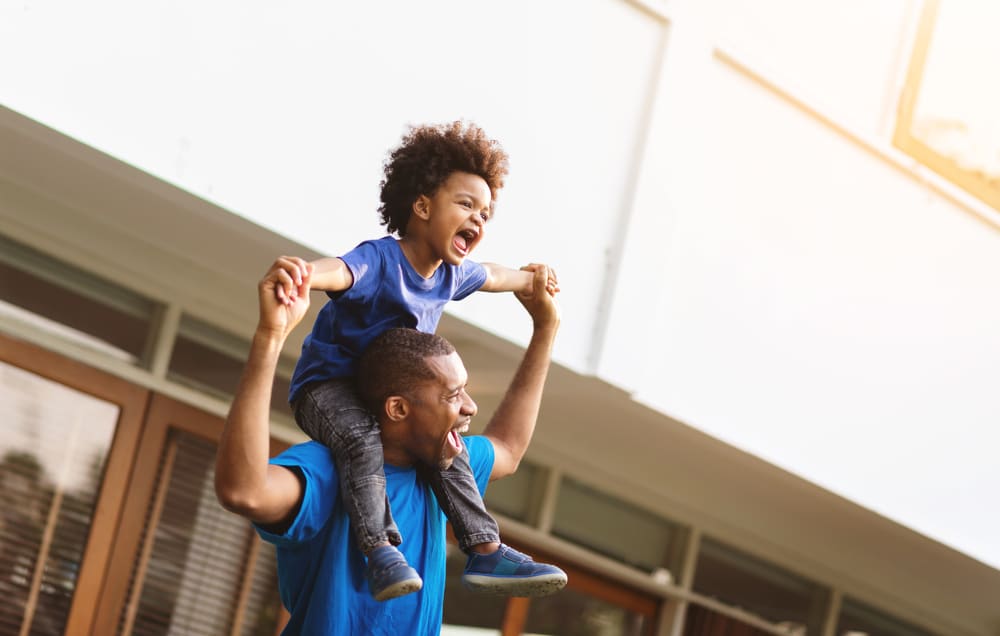- Children develop confidence gradually through real experiences, effort, and resilience rather than perfection or constant praise. Allowing them to face challenges, manage emotions, and practice autonomy helps build lasting self-belief.
Confidence doesn’t bloom overnight, and it’s not something you can force into a child like a vitamin. It builds gradually, on scraped knees, little wins, and those awkward moments where they try, fail, and try again. But here’s the catch: confidence doesn’t mean perfection.
It’s the quiet resilience that helps kids keep going, especially when things feel shaky. Your role isn’t to protect them from every stumble. It’s to be the voice in the background saying, “You’ve got this,” while letting them test their own legs.
Let Them Feel Hard Things
Resilient kids aren’t the ones who never cry, they’re the ones who know they won’t be judged when they do. Emotional strength starts when children are allowed to feel sadness, disappointment, and frustration without shame.
They need room to name those feelings and work through them, not shove them down to keep the peace. If you want them to bounce back stronger, help them face challenges by showing that struggle isn’t weakness, it’s information.
Talk about what happened, Note that it is important to talk about how they handled it and what they learned. That kind of self-reflection is what roots confidence deeper than any compliment ever could.
Praise the Work, Not the Win
Telling a child they’re “so smart” might sound nice, but it wires them to avoid risks they might not ace. What they need instead is permission to try, to fail, and to grow from the process.
When a kid hears that you’re praising effort, not outcome, they start to associate value with how they show up not just where they land.
That creates a sense of agency that no grade or score can deliver. You’re showing them that work, persistence, and resilience are what matter most. That’s how you raise kids who’ll keep going even when no one’s clapping.
Let Confidence Grow From Doing
Confidence doesn’t come from telling kids they’re capable, it comes from giving them chances to be capable. Let them pour their own milk, choose their own clothes, and take the lead when they’re ready. These tasks may seem small, but they create self-belief that scales.
Confidence comes from real skills, and kids recognize the difference between fake praise and earned pride. Every time you step back and let them step up, you reinforce the idea that they can handle the world. That’s the kind of knowing that sticks.
Find the Stretch Zone, Not the Panic Zone
Growth doesn’t happen where things feel easy, but it also doesn’t happen where things feel terrifying. The trick is finding the zone just beyond comfort, where they’re challenged but not frozen.
That’s where the most impactful learning happens, and that’s where confidence has a shot at forming roots. Instead of over-reassuring, offer calm scaffolding and let them stretch just outside comfort. Say things like, “This is new, but I think you’re ready to try.” Support, don’t swoop.
Let Uncertainty Be a Muscle, Not a Threat
Life isn’t always predictable, and your child needs tools that go beyond certainty. When they hit a wall, it’s tempting to jump in, but waiting allows them to practice problem-solving. Uncertainty isn’t an enemy; it’s a space where confidence can grow if we let it.
Preparing for life’s twists builds strength that lasts far longer than rehearsed scripts. Instead of teaching them to fear the unknown, show them that they can find footing even when things shift. That mindset becomes armor they’ll carry into adulthood.
Encourage Mindfulness Without Making It a Chore
Mindfulness helps kids regulate emotions, observe thoughts, and reset during stress, but it has to feel doable. It’s not about forcing stillness; it’s about teaching presence. Try moments like listening to breath, noticing colors outside, or touching textures with focus.
Even brief awareness trains the mind to pause before reacting. When they begin learning to stay present, they reduce future anxiety and build inner calm. That clarity fuels both optimism and goal-setting.
Keep Play Wild, Messy, and Unscheduled
Structured activities have their place, but confidence flourishes in spaces where kids control themselves. Let them make up the rules, get muddy, negotiate turns, and figure things out their way. That kind of autonomy is where real growth hides.
Unstructured play boosts confidence because kids learn they can lead, not just follow. You don’t need to supervise every second; in fact, not doing so is the point. Step back, and let the play do the teaching.
Confidence isn’t taught like a lesson, it’s lived in daily moments. It shows up when kids fall and know how to get up. It grows in the pauses between challenge and response. You build it when you praise the process, tolerate the mess, and offer room to figure it out.
Support doesn’t mean shielding them; it means trusting them to rise. With your steady presence, they’ll build strength that doesn’t need constant applause to endure.












